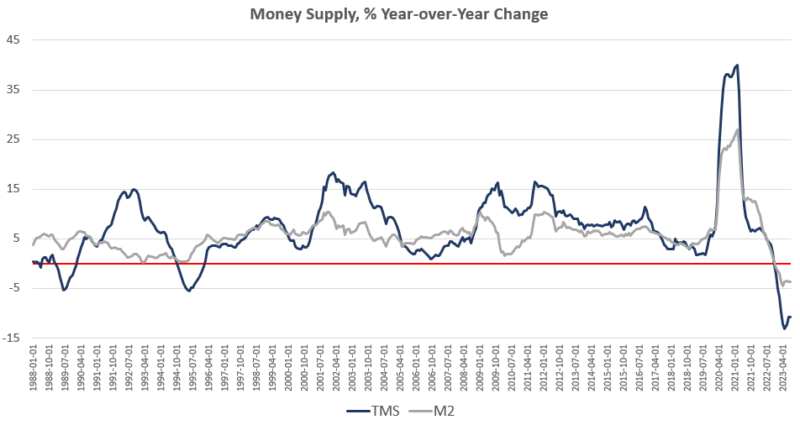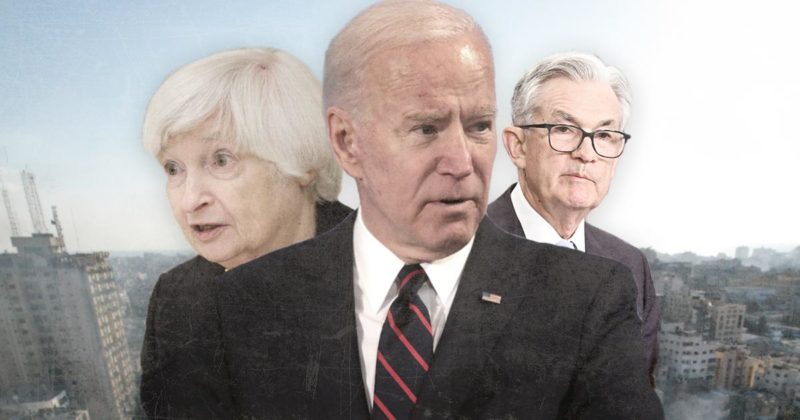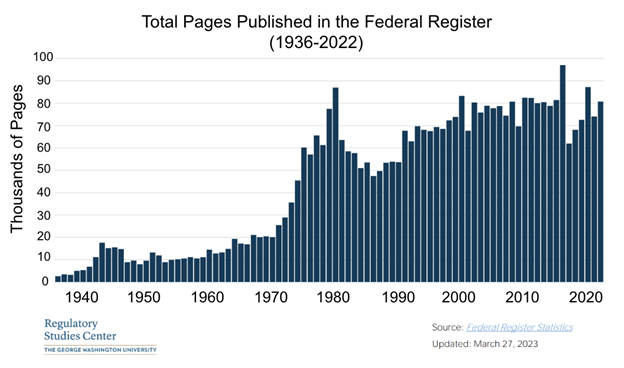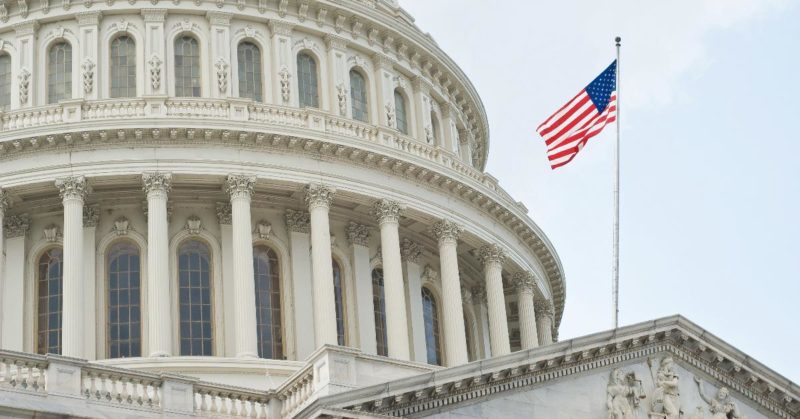Category Archive: 6b.) Mises.org
Managing the Influx
Recorded at the Mises Institute Supporters Summit in Auburn, Alabama, 12-14 October 2023. Sponsored by Bob Tancula.
Includes awarding of the George F. Kother Free-Market Writing Award by Ben Koether.
Managing the Influx | Shawn Ritenour
Video of Managing the Influx | Shawn Ritenour
Read More »
Read More »
How the End of US Dollar Hegemony Affects the Business Landscape
Recorded at the Mises Institute Supporters Summit in Auburn, Alabama, 12-14 October 2023. Sponsored by Michael and Lisa Keller.
Download the slides from this lecture at Mises.org/SS23_PPT_7
How the End of US Dollar Hegemony Affects the Business Landscape | Peter Klein
Video of How the End of US Dollar Hegemony Affects the Business Landscape | Peter Klein
Read More »
Read More »
Fractional Reserve Banking, Present Discounted Value, and the Austrian Business Cycle Theory
Recorded at the Mises Institute Supporters Summit in Auburn, Alabama, 12-14 October 2023. Sponsored by Thomas and Lisa Dierl.
Fractional Reserve Banking, Present Discounted Value, and ABCT | Walter Block
Video of Fractional Reserve Banking, Present Discounted Value, and ABCT | Walter Block
Read More »
Read More »
The Dollar Descent
Recorded at the Mises Institute Supporters Summit in Auburn, Alabama, 12-14 October 2023. Sponsored by Gregory and Jane Gandee.
Download the slides from this lecture at Mises.org/SS23_PPT_6
The Dollar Descent | Mark Thornton
Video of The Dollar Descent | Mark Thornton
Read More »
Read More »
Central Bank Digital Currencies: The Last Battle in the War on Cash
Recorded at the Mises Institute Supporters Summit in Auburn, Alabama, 12-14 October 2023. Sponsored by Dan Johnson and Randee Laskewitz.
Central Bank Digital Currencies: The Last Battle in the War on Cash | Jonathan Newman
Video of Central Bank Digital Currencies: The Last Battle in the War on Cash | Jonathan Newman
Read More »
Read More »
Government-Managed Digital Currency: A Further Threat to Our Freedom
Recorded at the Mises Institute Supporters Summit in Auburn, Alabama, 12-14 October 2023. Sponsored by Mark Strategos.
Government-Managed Digital Currency: A Further Threat to Our Freedom | Paul Gottfried
Video of Government-Managed Digital Currency: A Further Threat to Our Freedom | Paul Gottfried
Read More »
Read More »
Assessing the BRICS Expansion: Debunking Expectations
Although there has been excitement and fanfare over the recent BRICS meetings and proclamations, it is doubtful that these economies’ performance can match their rhetoric.
Original Article: Assessing the BRICS Expansion: Debunking Expectations
Read More »
Read More »
The Parasitic Rich Men North of Richmond
Seemingly coming out of nowhere was the song “Rich Men North of Richmond,” by singer-songwriter Oliver Anthony. Overnight, the laments of one man from Appalachia over the state of the American economy and government spread like wildfire.
In “Rich Men North of Richmond” Anthony decries the declining value of the US dollar, the lack of accountability for those on Jeffrey Epstein’s client list, and the use of taxpayer dollars to fund obesity through...
Read More »
Read More »
Credit Tightens as the Money Supply Falls for Ten Months In a Row
Money supply growth fell again in August, remaining deep in negative territory after turning negative in November 2022 for the first time in twenty-eight years. August's drop continues a steep downward trend from the unprecedented highs experienced during much of the past two years.
Since April 2021, money supply growth has slowed quickly, and since November, we've been seeing the money supply repeatedly contract year over year. The last time the...
Read More »
Read More »
The Phony Debate on Fiat Money: Rules versus Discretion
Recorded at the Mises Institute Supporters Summit in Auburn, Alabama, 12-14 October 2023. Sponsored by Wilfried and Barbara Puscher
The Phony Debate on Fiat Money: Rules versus Discretion | Joseph T. Salerno
Video of The Phony Debate on Fiat Money: Rules versus Discretion | Joseph T. Salerno
Download the slides from this lecture at Mises.org/SS23_PPT_2
Read More »
Read More »
Real Economic Growth Depends on Savings
Keynesians claim that the source of economic growth is consumer spending. Austrians know that net savings are the key to a growing economy.
Original Article: Real Economic Growth Depends on Savings
Read More »
Read More »
Mises Circle in Tampa
Save the date!
Join the Mises Institute in Tampa, FL for our first event of 2024. We'll meet at The Centre Club, 123 S West Shore Blvd, 8th Floor on Saturday, February 17, 2024. Registration will include all lectures and a catered breakfast.
Speaker, agenda, and registration details forthcoming.
Special thanks to Liberty Villages and the Shrader family for sponsoring this event.
Read More »
Read More »
Thinking Outside the State
It’s difficult to go very far these days without tripping over the state with its voluminous laws, regulations, departments, and agencies. The last few decades, and indeed the last few centuries, have seen the continual expansion of states into more and more aspects of our lives with both the left and right of politics having their own grand visions for its development. But is the state really the institution we ought to be banking on for our...
Read More »
Read More »
Do Monarchs Always Have Low Time Preferences?
Hans Hoppe theorized that monarchs, as opposed to democratically-elected political authorities, would have lower time preferences and would be less likely to engage in reckless government spending. Unfortunately, at least one Medieval Danish king acted like a modern politician.
Original Article: Do Monarchs Always Have Low Time Preferences?
Read More »
Read More »
No, We Cannot Afford to Fund Yet Another War
In a 60 Minutes interview over the weekend, host Scott Pelley asked President Joe Biden, “Are the wars in Israel and Ukraine more than the United States can take on at the same time?” The president answered, “We can take care of both of these and still maintain our overall international defense. We have the capacity to do this, and we have an obligation to.”
In a Sky News interview released Monday, Treasury Secretary Janet Yellen gave a similar...
Read More »
Read More »
The US Military Is Laying the Groundwork to Reinstitute the Draft
Not satisfied with the futile and destructive wars it has fought in this century, leaders of the US Armed Forces now want reinstatement of the draft. Instead, perhaps our government should give peace a chance.
Original Article: The US Military Is Laying the Groundwork to Reinstitute the Draft
Read More »
Read More »
Back to the Future Morphs into Dystopia
It is 2023, eight years after 2015, the year of flying cars and climate-controlled clothing that Marty McFly traveled to in a time machine. In our own world, the ruling elite wants to ban cars to control the climate. How did we get here? What caused the discrepancy between our vision of a more advanced future and the reality we face now?
We had reason to expect it. From 1860–1970, the United States grew at an average of over 5 percent per year. But...
Read More »
Read More »
The State against Anonymity
Governments are using intimidation to regulate independent journalists on the decentralized internet.
Original Article: The State against Anonymity
Read More »
Read More »
The Spirit of the Establishment Will Thrive under a “Populist Opposition” Government
One of the most eventful things to have happened recently was from an unexpected source. The State Department and the intelligence apparatus didn’t initiate any coups somewhere in the Third World, the Kremlin didn’t launch a blitzkrieg and capture Kiev, and a currency from the BRICS nations (Brazil, Russia, India, China, and South Africa) hasn’t entered circulation yet. For the man who was once heralded as a savior for spearheading electric vehicle...
Read More »
Read More »
Supporters Summit 2024
Save the date!
Join us for our 2024 Supporters Summit, October 10–13, 2024, on Hilton Head Island, South Carolina. We'll be at the lovely Omni Hilton Head Oceanfront Resort.
We will have an event rate at the Omni Hotel for $299 per night before tax.
Speakers and agenda details forthcoming. Registration will be open soon on this page.
Read More »
Read More »



























